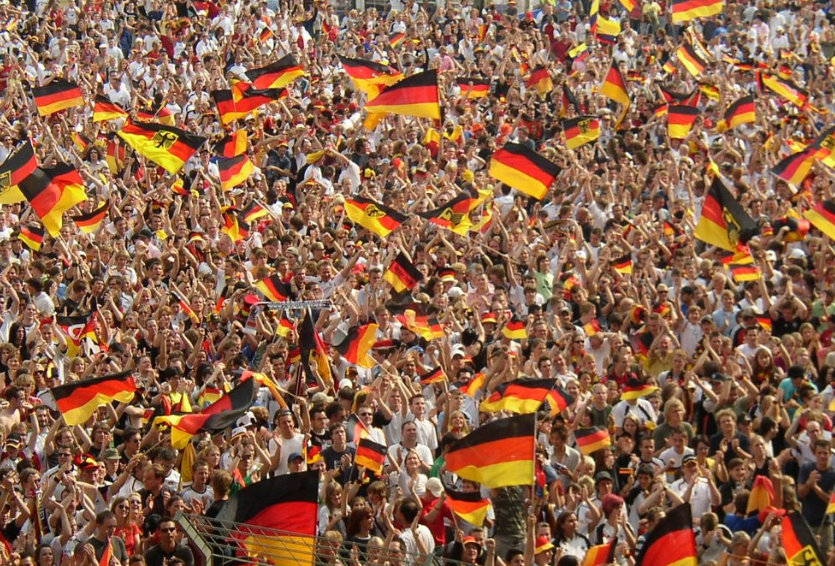Let’s dive into India National Festival. India is a country of diverse cultures, traditions, and religions, and every year, it celebrates several national festivals with great zeal and enthusiasm. One such festival is the Republic Day, celebrated on 26th January every year to commemorate the day when the Constitution of India came into effect. It is a day of pride, patriotism, and a celebration of India’s unity in diversity. In this article, we will explore the history and significance of India’s Republic Day, its celebrations, and some FAQs related to the festival.
India’s Republic Day: A Celebration of Unity in Diversity
India’s Republic Day is celebrated on 26th January every year, marking the day when the Constitution of India came into effect, replacing the Government of India Act of 1935. It is a day of pride, patriotism, and celebration of India’s unity in diversity. The Republic Day celebrations in India are a grand spectacle of India’s rich cultural heritage, military prowess, and national pride.
History of the India National Festival
The history of Republic Day dates back to the pre-independence era when India was still under British rule. The Indian National Congress, under the leadership of Mahatma Gandhi, first demanded complete independence from British rule in 1929. However, it was only after years of struggle and several rounds of negotiations that India finally achieved independence on 15th August 1947.
After independence, India adopted a temporary constitution, the Government of India Act of 1935, which was modified to suit the needs of an independent India. However, it was only on 26th January 1950 that the Constitution of India came into effect, marking India’s transition from a British dominion to a sovereign democratic republic.
Celebrations of the India National Festival
The Republic Day celebrations in India are a grand affair, starting with the hoisting of the national flag and singing of the national anthem, followed by a parade and cultural programs. The main celebration takes place at the Rajpath in New Delhi, where the President of India hoists the national flag and delivers a speech.
The highlight of the celebrations is the Republic Day parade, which showcases India’s military might, cultural diversity, and technological advancements. The parade features various contingents of the Indian Armed Forces, folk dance groups, and floats representing various states of India. The parade culminates with the display of colourful balloons, fighter jets, and helicopters flying past the venue.
The Republic Day celebrations also include the Beating Retreat ceremony, which takes place on 29th January, marking the end of the Republic Day festivities.
Significance of the India National Festival
India’s Republic Day is significant for several reasons. Firstly, it celebrates the adoption of the Constitution of India, which is the supreme law of the country, governing the rights and duties of the citizens and the government. The Constitution of India upholds the principles of justice, liberty, equality, and fraternity, and is the foundation of India’s democracy.
Secondly, the Republic Day is a celebration of India’s unity in diversity. India is a country of diverse cultures, languages, religions, and traditions, and the Republic Day celebrations showcase the country’s rich cultural heritage and promote national integration.
Lastly, the Republic Day is a symbol of India’s democracy, which is the largest in the world. The Constitution of India guarantees fundamental rights and freedoms to all citizens, and the Republic Day celebrations reaffirm the commitment to these principles.
FAQs
Q. What is the significance of the Republic Day parade?
A. The Republic Day parade is a showcase of India’s military might, cultural diversity, and technological advancements. It is significant because it highlights the country’s progress in various fields and promotes a sense of national pride among the citizens.
Q. How is the President’s speech on Republic Day different from other occasions?
A. The President’s speech on Republic Day is significant because it outlines the government’s policies and priorities for the coming year. It is different from other occasions because it is the only speech where the President addresses the entire nation.
Q. Why is the Republic Day celebrated on 26th January?
A. The Republic Day is celebrated on 26th January because it was on this day in 1950 that the Constitution of India came into effect, replacing the Government of India Act of 1935.
Q. Are there any specific dress codes for the Republic Day celebrations?
A. There are no specific dress codes for the Republic Day celebrations. However, people usually wear clothes in the colors of the national flag – saffron, white, and green.
Q. Can tourists attend the Republic Day parade in Delhi?
A. Yes, tourists can attend the Republic Day parade in Delhi. However, they need to obtain passes from the Ministry of External Affairs or the Indian Tourism Development Corporation (ITDC) in advance.
Conclusion
India’s Republic Day is a day of pride, patriotism, and celebration of India’s unity in diversity. The festival commemorates the adoption of the Constitution of India, which upholds the principles of justice, liberty, equality, and fraternity, and is the foundation of India’s democracy. The Republic Day celebrations in India are a grand spectacle of India’s rich cultural heritage, military prowess, and national pride, and promote national integration and a sense of belonging among the citizens.
References
- “Republic Day of India”, Wikipedia, https://en.wikipedia.org/wiki/Republic_Day_(India)
- “Why is Republic Day celebrated in India?”, The Indian Express, https://indianexpress.com/article/india/republic-day-2021-history-significance-importance-7148257/
- “What is the significance of Republic Day?”, India Today, https://www.indiatoday.in/india/story/republic-day-2021-significance-importance-what-is-it-1763003-2021-01-25

